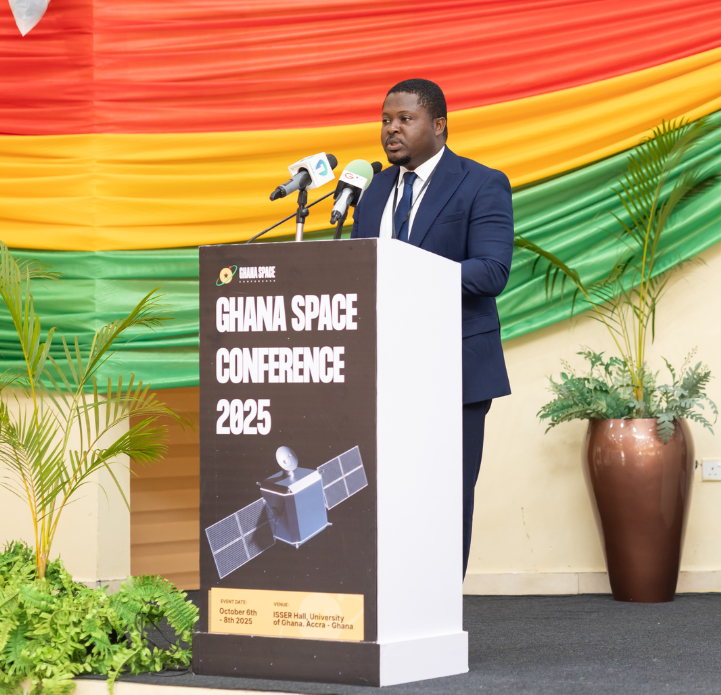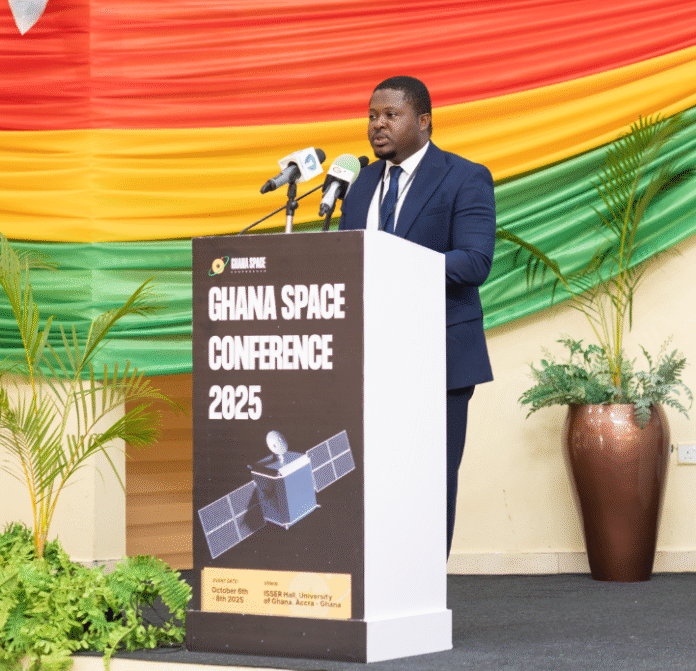The Ghana Space Science and Technology Institute (GSSTI) has reaffirmed the country’s growing leadership in Africa’s space development efforts, highlighting the nation’s progress since the launch of its first satellite, GhanaSat-1, in 2017 and the launch of the Ghana Space Policy in 2024.

In a keynote address delivered during ongoing Ghana Space Conference taking place at the University of Ghana in Accra, officials from the GSSTI underscored the country’s commitment to harnessing space science and technology for socio-economic transformation. The GSSTI is spearheading efforts to coordinate cross-sectoral collaboration, build local capacity, and create a thriving market for space-based applications.
“The establishment of the Ghana Space Agency will ensure national coordination and efficient resource use across sectors such as the environment, communications, and education. Our goal is to strengthen Ghana’s human resource and technological base to leverage space technology for the benefits of the ordinary Ghanaian,” said Dr. Joseph Tandoh, Director of the Ghana Space Science Institute.
On her part, the Chief Executive Officer of the Environmental Protection Authority (EPA), Prof. Nana Ama Browne Klutse, emphasized the need for Ghana to deepen its commitment to space science applications, particularly in the agriculture and mining sectors—two key pillars of the national economy increasingly affected by climate variability, land degradation, and unsustainable resource extraction.
Prof. Klutse noted that the integration of satellite data, remote sensing, and geospatial technologies holds immense potential to improve environmental monitoring, precision agriculture, and sustainable mineral exploration. She further underscored that the global space economy, currently valued at around USD 600 billion, is projected to exceed USD 1.3 trillion within the next decade—a trajectory that presents both economic and strategic opportunities for Ghana.
She urged the country to invest in local capacity development in space technology production, data analytics, and innovation-led research, stressing that this will enable Ghana to harness emerging opportunities within the global space ecosystem.
Prof. Klutse’s remarks firmly position the EPA as a champion of cross-sectoral collaboration, calling on academia, government, and private industry to work together in leveraging space science as a catalyst for sustainable environmental management and resilient national development.
Professor Melvin Hoare, University of Leeds in his presentation, emphasized that astronomy and space science are key to inspiring youth in STEM and driving innovation in data science, remote sensing, and related industries. He noted that the conversion of a 32-meter telecom dish into a functional radio telescope has not only advanced research but also provided high-level technical training for Ghanaians.
Human Capital Development
According to Prof Hoare, Ghana continues to benefit from international partnerships that build technical expertise and research capacity.
He said the gains include the South African Radio Astronomy Observatory (SARAO) HCD Program, offering training in engineering and scientific skills, the Development in Africa with Radio Astronomy (DARA) Project, funded by the UK government, which has trained many young Ghanaians and the Big Data Project, focusing on data analytics for applications such as remote sensing and medical imaging.
These initiatives are strengthening Ghana’s human capital base and creating pathways for entrepreneurship and job creation in the space economy.


